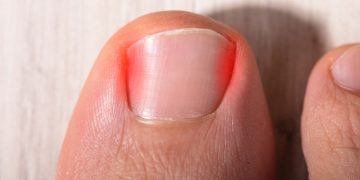When you go by definition, infertility is when you cannot able to get pregnant after having unprotected intercourse for a whole year. Doctors now know for a fact that both women and men can equally be infertile.
However, there is no point in blaming one another when you are trying to find a solution to the problem. Getting pregnant is, after all, a collaborative undertaking. If you are struggling hard to conceive, here are some simple tips you can follow to increase your chances and become successful.
There are many reasons as to why women might be infertile, some of the common causes include:
- Sexually transmitted diseases
- Endometriosis
- Uterine fibroids
- Irregular menstruation
- Deficiency of healthy eggs
- Hormone imbalance
Some women could be infertile due to a hidden birth defect they are unaware of which affects their uterus or fallopian tubes.
In men, the most common cause of infertility is the lack of sufficient sperms or low sperm count. Another possibility is the misshapen sperms that cannot efficiently swim to the egg.
Remedies for women
Be aware when your egg is ready
One of the common mistakes many couples do is having intercourse when the egg is hardly ready.
You are most fertile five days before and one day after ovulation. Question is how to know this time period every month?
Check or close watch your cervical mucus. If it turns thin and clear, it means ovulation is about to begin. When your mucus is thin, it gets easier for the sperm to reach your eggs.
If the mucus is stretchy and looks more like egg white, the getting is good for getting pregnant.
You can also make use of ovulation test kit to really know if you are actually ovulation or having any problems with it. This test kit is similar to the pregnancy test kit, and it only requires your urine sample.
It is better to get it checked with your doctor if you are not ovulating for three months straight.
Lose the extra weight or bulk up
If you are overweight or obese which can be identified through the BMI test. Then try to shed some pounds. your desire to get pregnant can be a great motivating factor to start the process.
Excessive stored fat in the body increases the production of estrogen. When estrogen levels are too high, it can actually inhibit you from getting pregnant.
Another major reason for infertility in women is being too thin. When you are very thin, your body is starved of fat, which could directly impact your ovulation cycles and your uterus may reject the implantation of the fertilized egg.
If you feel you are too thin to conceive, then try to eat healthy and fat-rich foods like lean protein, whole-grains, and include healthy oils such as olive oil in your diet.
Stay relaxed
It is very important that feel relaxed and less anxious when you are trying to conceive. Also, avoid exhausting physical tasks. Too much physical work can really put your body off balance and becomes less capable of accepting the demands of pregnancy.
If you are someone who exercises regularly, then do not go overboard. Experts believe that exercising for more than 60 minutes everyday can directly interfere with ovulation. Additionally, avoid strenuous exercises that can drain your energy rapidly.
Avoid doing extra hours at your office, if possible try to get off work little early than you usually do. Research studies have shown that women who work long hours and do stressful works have trouble getting pregnant.
If time permits practice yoga and meditation, the two most effective ways to relax your body and mind. Additionally, it helps to keep your stress at bay.
Avoid antihistamines and decongestants
Both antihistamines and decongestants are designed to lower the levels of mucus in your sinuses. However, it is believed that they can also impact your cervical mucus, which is very vital for the sperm to reach the egg.
Avoid painkillers
Painkillers like ibuprofen can interfere with ovulation, and inhibit the fertilized eggs from attaching to the walls of your uterus. Doctors usually advise you to skip painkillers when you are trying to conceive.
For any reason, if you need pain relief, try aspirin or acetaminophen instead of ibuprofen.
Take chasteberry capsule or tincture
Studies have shown that chasteberry mimics the effects of progesterone hormone in women and helps to regulate the menstrual cycle.
This helps to have a more predictable ovulation cycle and increase your chances of getting pregnant. Additionally, chasteberry strengthens the uterine lining.
Doctors recommend taking 175 milligrams worth of capsules each morning or 40 drops of tincture till you get pregnant.
Note: You need to stop using chasteberry as soon as you suspect you might be pregnant.
False unicorn root tincture
False unicorn root tincture will help to regulate your menstrual cycle and make it more regular. This herb can really help when your estrogen levels are off the roof or too high.
Try to consume 5 to 15 drops of tincture every morning.
Remedies for Men
Stock up your sperm
Greater the number of sperms you can able to inseminate in your partner, the greater the chances are for your partner to get pregnant.
So, say not to sex for a few days before your partner starts to ovulate.
Wear loose clothes
Heat is the primary enemy for your sperms. Tight-fitting clothes that trap heat in the lower part of your body reduces the number of healthy sperms.
Wear loose and airy clothes, and try to wear boxers instead of snug-fitting underwear.
Additionally, avoid hot steamy baths as well.
Supplements to increase your chances
Zinc: This helps to boost your testosterone levels, sperm count, and also the motility of your sperm. As zinc interferes with your body’s ability to absorb copper, try to take 2 milligrams of copper every day while you take zinc. The recommended dose of zinc is 30 milligrams each day.
Vitamin-C and E: Oxidative stress or free radicals are the biggest threat to your sperms. To protect your sperm from the damaging effects of free radicals you will need a daily dose of 1000 milligrams of vitamin-C and 400 IU of vitamin-E twice a day.
Note: For those taking anticoagulant or any other medications that could interfere with blood clotting, talk to your doctor before supplementing vitamin-E.
Selenium: Numerous scientific studies have shown that selenium greatly increases your sperm motility, though it doesn’t impact your sperm count.
Doctors recommend taking no more than 100 micrograms of selenium every day for a duration of three months to notice results.
Pycnogenol: If you haven’t heard that name before, it is an extract from the bark of a pine tree that typically grows in France. Studies have shown that men who regularly took 200 milligrams of pycnogenol every day for a duration of three months greatly improved the quality and functioning of sperm.
Pycnogenol is an easily available supplement in most drug stores, and yes, it is an over the counter supplement.
Flaxseed oil: This is a rich source of essential fatty acids that helps greatly to keep the sperm healthy. Even if it doesn’t help with making your partner pregnant, it can still help to keep the bad cholesterol levels low and protect you from heart diseases.
Take a tablespoon of flaxseed oil every day along with your food. You can either take it directly or add it to your foods such as juice, yogurt, and salads.
Advice for both men and women
Stop smoking: Smoking is not only bad for your health overall, it is also bad when you are trying for a baby. It potentially decreases fertility in both men and women, and also greatly increases the chances for miscarriage.
Smoking women will quickly dwindle their ovaries over non-smoking women. In men, smoking decreases the quality of sperm and also damage it.
Avoid alcohol: In men, alcohol can cause erectile dysfunction and impair ejaculation. Too much alcohol in women’s bloodstream will inhibit the movement of eggs.
Timing is the key
When you are trying to get pregnant timing is the key. When you are well aware of the imminent ovulation, have sex for at least once a day for three days in a row.
If you are not tracking down your ovulation date or unsure of it, try to have intercourse every alternate days starting from 8th day from the end of your last menstrual cycle through 20th day. Sperms have a lifespan of around three days, by increasing the number of sperms in your system, you will greatly increase the chances of getting pregnant.








